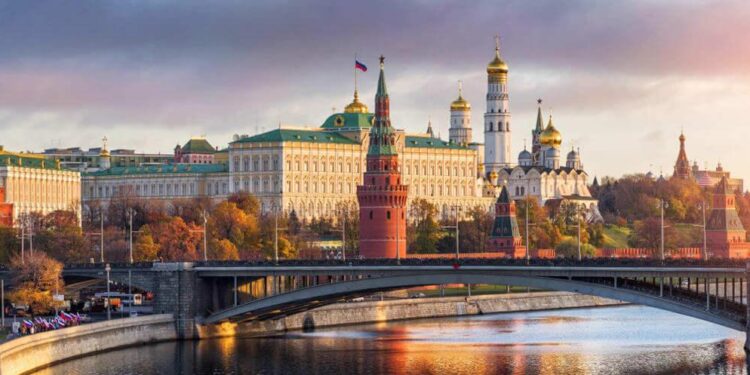In recent weeks, Russia has increasingly drawn parallels between Azerbaijan and Ukraine, a comparison that has sparked widespread analysis and debate among international observers. As tensions simmer in both regions, Moscow’s rhetoric underscores complex geopolitical dynamics that extend beyond bilateral relations. This article examines the reasons behind Russia’s invocation of Ukraine in discussions about Azerbaijan, exploring the strategic, historical, and political factors that inform this narrative and what it signals for the broader security landscape in Eurasia.
Geopolitical Parallels Shaping Russia’s View of Azerbaijan and Ukraine
Russia’s strategic calculus concerning Azerbaijan and Ukraine operates on several shared geopolitical dynamics, despite the distinct contexts of each nation. Both countries serve as pivotal arenas where Russia confronts expanding Western influence-particularly from NATO and the EU-which Moscow perceives as direct threats to its traditional sphere of control. Energy resources, ethnic complexities, and territorial disputes further complicate Moscow’s approach, driving Russia to assert its dominance through a combination of political pressure and military posturing. This creates a parallel narrative where Azerbaijan’s growing partnership with Turkey echoes Ukraine’s closer ties with Western powers, intensifying Russia’s fears of encirclement.
- Energy corridors: Azerbaijan as a pipeline hub versus Ukraine’s de facto transit role for Russian gas.
- Ethnic and regional tensions: Nagorno-Karabakh in Azerbaijan and Crimea/Donbas in Ukraine.
- Geopolitical alliances: Turkey’s influence in Azerbaijan contrasted with NATO’s involvement in Ukraine.
| Aspect | Azerbaijan | Ukraine |
|---|---|---|
| Russian Strategic Interest | Maintain influence, counter Turkey & West | Prevent NATO expansion |
| Territorial Issues | Nagorno-Karabakh conflict | Crimea annexation, Donbas war |
| Western Alignment | Growing ties with Turkey and EU | Seeking EU & NATO membership |
| Energy Role | Key oil/gas exporter, pipeline routes | Critical transit route for Russian gas |
Implications of Russia’s Comparison for Regional Stability and Security
The parallels drawn between Azerbaijan and Ukraine by Russian analysts carry significant consequences for the South Caucasus and broader Eurasian region. Moscow’s narrative suggests that any escalation in Azerbaijan could trigger a broader conflict, prompting a recalibration of military deployments and diplomatic efforts among regional powers. This comparison inflames existing ethnic tensions and borders’ disputes, cultivating an environment ripe for instability. The possibility of external actors capitalizing on such unrest exacerbates the vulnerability of fragile peace agreements, placing Armenia, Georgia, and even Turkey on heightened alert.
From a security perspective, the analogy serves as a warning of potential proxy conflicts and frozen disputes transforming into active confrontations. International stakeholders, including the OSCE and CSTO, are likely to intensify mediation efforts to avoid a scenario reminiscent of Ukraine’s protracted conflict. Key factors shaping regional security dynamics include:
- Military posturing: Increased troop movements and weapons deliveries near contentious borders.
- Energy routes: Disruptions threatening pipeline security and global energy markets.
- Diplomatic alignments: Shifts in alliances that could redefine spheres of influence.
| Factor | Potential Impact |
|---|---|
| Armed Clashes | Escalation into full-scale conflict |
| Peacekeeping Efforts | Increased OSCE and UN involvement |
| Economic Sanctions | Pressure on aggressor states |
Strategic Recommendations for Western Policy Response in the South Caucasus
To counterbalance Moscow’s expanding influence in the South Caucasus, Western policymakers must embrace a multidimensional strategy that prioritizes diplomatic engagement and regional security cooperation. Strengthening partnerships with Azerbaijan and Armenia involves not only fostering economic ties but also addressing conflict resolution frameworks through impartial mediation. Equally, investment in energy infrastructure that bypasses Russian-controlled routes will play a critical role in reducing Kremlin leverage over the region’s vital transit corridors.
Key strategic actions should include:
- Enhanced Security Assistance: Supply intelligence-sharing platforms and non-lethal military aid to improve defense capabilities against destabilization efforts.
- Economic Diversification: Promote Western-backed initiatives that reduce dependency on Russian economic networks, fostering sustainable development.
- Robust Diplomatic Engagement: Support inclusive peace negotiations that respect territorial integrity while encouraging political reforms.
- Information Campaigns: Counteract disinformation campaigns through strategic communications that highlight the benefits of Western partnership.
| Policy Area | Western Initiative | Expected Outcome | ||||||||||||
|---|---|---|---|---|---|---|---|---|---|---|---|---|---|---|
| Security Cooperation | Joint Military Exercises & Intelligence Sharing | Deterrence of Russian Aggression | ||||||||||||
| Economic Partnerships | Investment in Alternative Trade Routes | Reduced Russian Economic Leverage | ||||||||||||
| Diplomatic Efforts | Mediation and Conflict Resolution Platforms | Sustainable Peace and Stability | ||||||||||||
| Policy Area | Western Initiative | Expected Outcome |
|---|---|---|
| Security Cooperation | Joint Military Exercises & Intelligence Sharing | Deterrence of Russian Aggression |
| Economic Partnerships | Investment in Alternative Trade Routes | Reduced Russian Economic Leverage |
| Diplomatic Efforts | Mediation and Conflict Resolution Platforms | Sustainable Peace and Stability |
| Information Campaigns | Strategic Communications to Counter Disinformation | Increased Public Support for Western Partnerships |
If you want me to help with anything else, such as improving the text or formatting, let me know!
Key Takeaways
As tensions continue to shape dynamics across the region, Russia’s comparison of Azerbaijan to Ukraine underscores the complexities at play in its foreign policy calculus. By framing the Azerbaijani conflict through a lens similar to that of Ukraine, Moscow signals both caution and strategic messaging to domestic and international audiences. Understanding these parallels is crucial for observers seeking to grasp the evolving geopolitical landscape in Eurasia and the broader implications for regional stability.
















